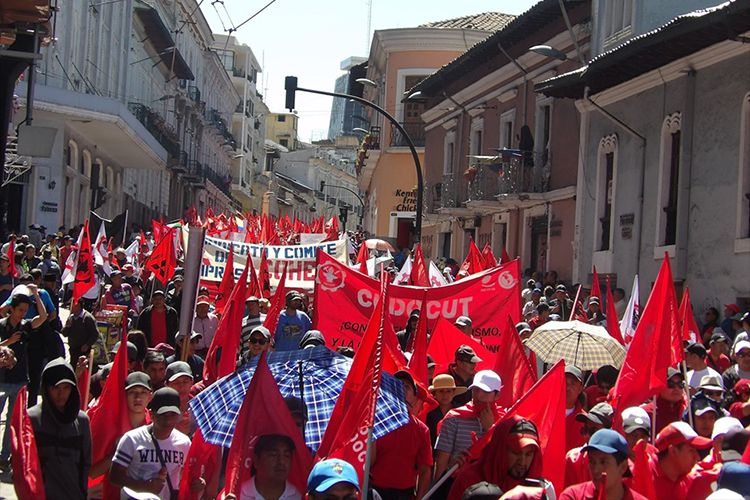“Ecuador’s strategy of public-sector-led growth reduced poverty by more than a third between 2007 and 2016. That successful approach is now being trashed with the IMF insisting on austerity as a condition of a $4.2 billion loan to the country. Wages will go down, unemployment will rise, and the prospects for economic growth will stall or decline,” said ITUC General Secretary Sharan Burrow.
A detailed analysis of the IMF agreement undertaken by the ITUC/Global Unions Washington office documents the questionable projections made by the IMF, which are used as justification to cut tens of thousands of public sector jobs, reduce wages and undermine Ecuador’s adherence to ILO standards. Recommendations to deregulate labour laws are drawn from the widely discredited World Bank “Doing Business” report.
During a meeting in Ecuador with Labour Minister Andrés Vicente Madero Poveda, ITUC Deputy General Secretary Víctor Báez warned of the negative impact similar agreements have had on workers in Greece, Egypt, Tunisia and Argentina. He pointed out that even if the government were contemplating measures which would be beneficial to workers, government decisions would need to be “vetted” by IMF staff members.
The IMF claims that reducing labour costs along with other measures to liberalise the economy will attract private investment and lead to recovery. However, similar programs that have applied this model have consistently lead to the failure of unrealistic growth projections to materialise, while social indicators have worsened.
“The IMF should stop clinging on to policies that cause long-term damage to economies and that put the burden on working people. It should support a strong and viable public sector, and programmes that ensure the economy works for people, not for international financial interests and multinationals that are continuously looking for the cheapest, most ‘flexible’ labour without regard to people’s livelihoods and living and working conditions,” said Báez.


